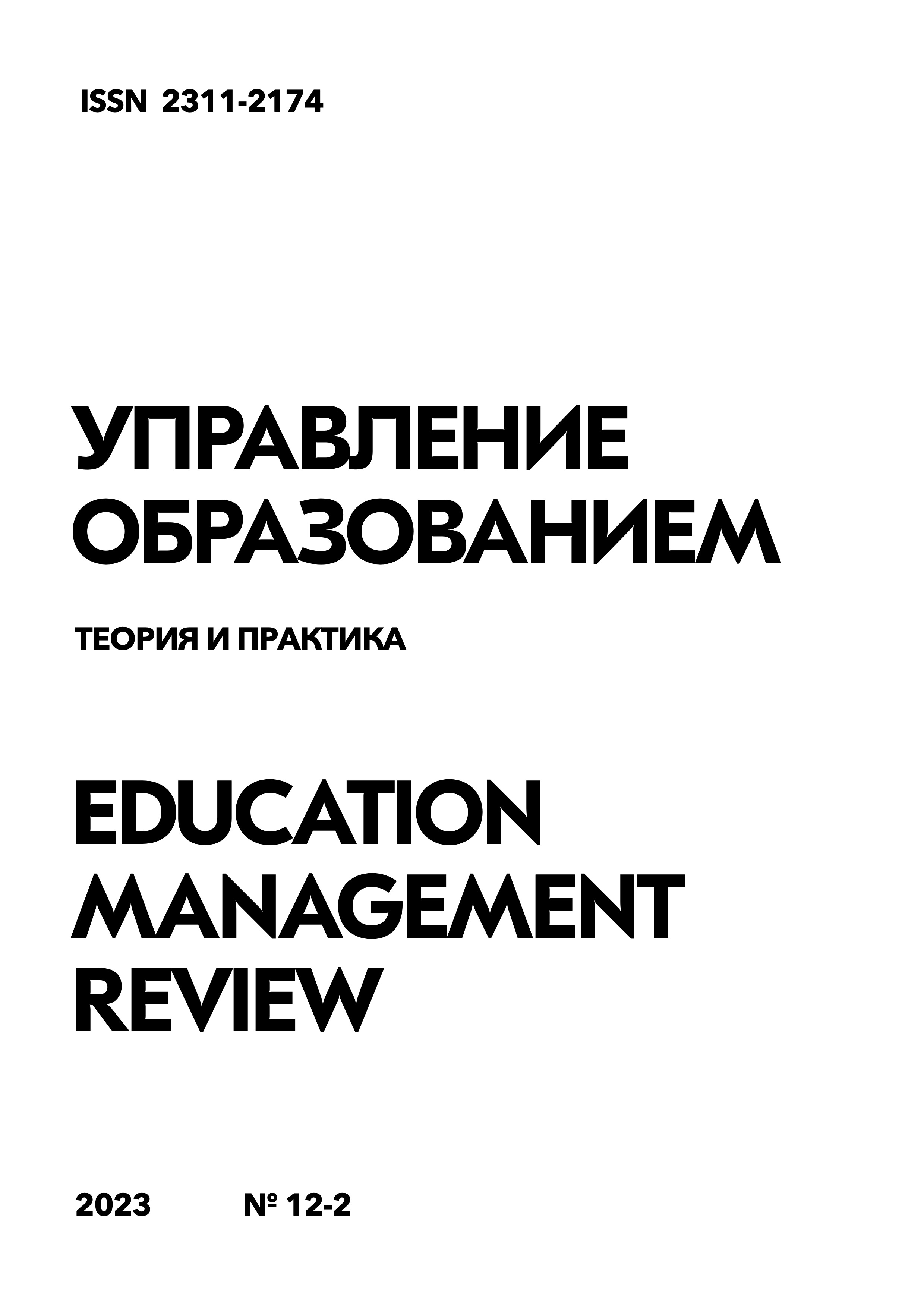Current trends in higher education pedagogy in Russia in the aspect of a student-centered approach
DOI:
https://doi.org/10.25726/l2059-4017-9052-oKeywords:
student-centered approach, higher education, pedagogical innovations, competence model, professional developmentAbstract
Current trends in the development of higher education in the Russian Federation demonstrate a transition to a student-centered approach, which is based on the principles of learning focused on the student’s personality. This concept provides for a shift in emphasis from the teacher to the student and determines the modern vector of development of domestic pedagogical science. The purpose of this study is to analyze transformation processes in higher education in Russia within the framework of a student-centered approach by identifying the key principles and methodological foundations of this concept, as well as considering practical examples of its implementation. An analysis of scientific literature, legal documents and statistical data on the development of higher education in Russia was carried out. The main provisions of the student-centered paradigm are identified, in particular, the principles of enhancing students’ activities, individualizing educational trajectories, and developing professional and personal competencies. Modern practices of implementing this approach are considered in view of the technologies of project-based and problem-based learning, the creation of interactive educational environments, and the development of professional standards. The degree of readiness of the teaching staff for a radical transformation of their professional activities in line with the student-centered approach also remains a debatable issue. Despite the presence of individual positive examples, the majority of higher education teachers are still focused primarily on the transfer of theoretical knowledge.
References
Байденко В.И. Болонский процесс: в преддверии третьего десятилетия // Высшее образование в России. 2018. Т. 27. № 11. С. 136-148. DOI: https://doi.org/10.31992/0869-3617-2018-27-11-136-148
Балабанов С.С., Бедный Б.И., Миронос А.А. Подготовка научных кадров социогуманитарного профиля в аспирантуре // Социологические исследования. 2008. № 3. С. 70-78.
Вергун Т.В., Колосова О.Ю., Гончаров В.Н. Индивидуальные образовательные траектории студентов в высшей школе: к постановке проблемы // Современные наукоемкие технологии. 2016. № 12-2. С. 313-317
Дёмина О.А., Тепленёва И.А. О трансформации методического мышления преподавателей вузов // Высшее образование в России. 2020. Т. 29. № 7. С. 156-167. DOI: https://doi.org/10.31992/0869-3617-2020-29-7-156-167
Кисель О.В., Дубских А.И., Бутова А.В. Трудности применения студентоцентриро-ванного подхода в российском высшем образовании // Высшее образование в России. 2020. Т. 29. № 8/9. С. 95-103. DOI: https://doi.org/10.31992/0869-3617-2020-29-8-9-95-103
Кисель О.В., Дубских А.И., Бутова А.В. Трудности применения студентоцентриро-ванного подхода в российском высшем образовании // Высшее образование в России. 2020. Т. 29. № 8-9. С. 95- 103. DOI: https://doi.org/10.31992/0869-3617-2020-29-8-9-95-103
Лукашенко М.А. Селф-менеджмент студента как основа результативности е-Learning // Высшее образование в России. 2021. Т. 30. № 2. С. 61-70. DOI: https://doi.org/10.31992/0869-3617-2020-29-2-63-73
Полякова Т.Ю. Проблемы толкования инженерно-педагогической терминологии в международном общении // Высшее образование в России. 2018. Т. 27. № 5. С. 104-109.
Романова Г.М., Ердакова В.П., Мазниченко М.А. Реализация академических прав студентов: Россия в Болонском процессе // Высшее образование в России. 2019. Т. 28. № 1. С. 3445. DOI: https://doi.org/10.31992/0869-3617-2019-28-1-34-45
Самосенкова Т.В., Савочкина И.В. Технология «эдьютейнмента»: к истории вопроса // Научные ведомости Белгородского государственного университета. Серия: Гуманитарные науки. 2017. № 28 (277). С. 142-149.
Сапух Т.В. Применение технологии «эдьютейнмент» в образовательной среде университета // Вестник Томского государственного педагогического университета. 2016. № 8 (173). С. 30-34.
Татаринов К.А. Геймификация в обучении студентов // Балтийский гуманитарный журнал. 2019. Т 8, № 1 (26). С. 281-284. DOI: 10.26140/bgz3-2019-0801-0074.
Терентьев Е.А., Бекова С.К., Малошонок Н.Г. Кризис российской аспирантуры: источники проблем и возможности их преодоления // Университетское управление: практика и анализ. 2018. Т. 22, № 5. С. 54-66. DOI 10.15826/umpa.2018.05.049.
Шепелев А.И. Образовательные программы Liberal Arts: современные тенденции и перспективы развития // Вестник Брянского государственного университета. Образование. Личность. Общество. 2018. Вып. 2. С. 39-42.
Шестак В.П., Шестак Н.В. Аспирантура как третий уровень высшего образования: дискурсивное поле // Высшее образование в России. 2015. № 12. С. 22-34.
Kalachikova O.N., Sidorova T.B. Individual educational trajectories: from educational supermarket to sensemaking to blended values // 2nd International Conference on Education Science and Social Development. 2019. Pp. 285-289.




